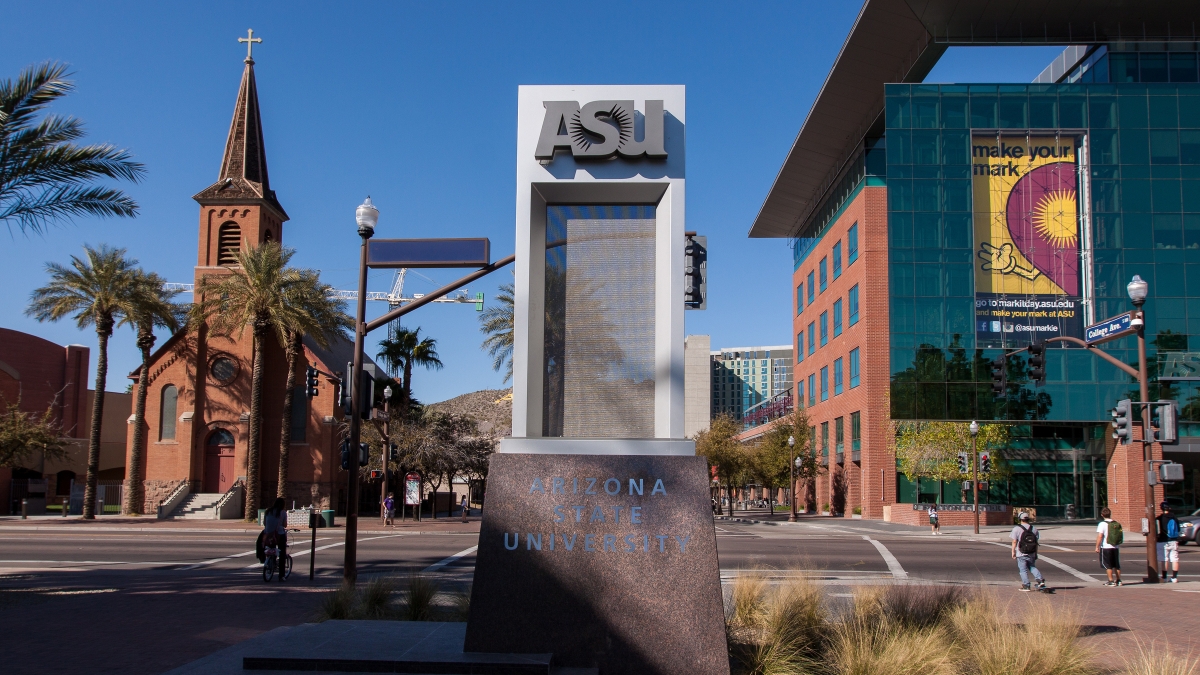Seven members of Arizona State University are among the 396 newly elected fellows of the American Association for the Advancement of Science (AAAS), a prestigious international scientific society. AAAS is the world’s largest general scientific society.
The seven new fellows from ASU are: Alexandra Brewis Slade, Maria Cruz-Torres, Sybil Francis, Subbarao Kambhampati, Randolph Nesse, Sethuraman Panchanathan and Michael Smith.
This year’s election brings the total number of AAAS Fellows at ASU to 76.
Becoming a fellow is in recognition of efforts toward advancing science applications that are deemed scientifically or socially distinguished. Within that general framework, each awardee is honored for contributions to a specific field.
Alexandra Brewis Slade, President’s Professor, School of Human Evolution and Social Change
Brewis Slade is being cited for her distinguished contributions in applying innovative social science techniques and insights into solutions for major societal problems such as stigma and severe weather disasters. An anthropologist, she has lead major field projects in many world regions throughout her career. At ASU, she is co-director of the Mayo Clinic Obesity Solutions initiative, and she leads the Global Impact Collaboratory, an effort to innovate international development monitoring. Brewis Slade is the incoming president of the Human Biology Association, an international organization dedicated to advancing research and teaching on the origins and implications of human biological variation.
Maria L. Cruz-Torres, associate professor, School of Transborder Studies
Cruz-Torres, an anthropologist, is being recognized for her outstanding contributions to the political ecology and economy of the vast U.S.-Mexico transborder region, particularly the interrelations of gender, work and labor, resource management and sustainability of fisheries and aquaculture. She has focused on the role of the state, transnational economy and natural resource exploitation, and their interrelated impacts on the environment and the formation of regional coastal areas and local communities and households. She is a former president of the Political Ecology Society.
Sybil Francis, School for the Future of Innovation in Society
Francis is cited for her contributions to U.S. science and technology policy through her work in Congress and the White House Office of Science and Technology Policy where she focused on energy, environment, space, national security and basic science policy issues. She also is being recognized for her outstanding leadership in education policy and practice, most recently through the Center for the Future of Arizona. Francis co-founded the center and is its executive director. The center helps define and shape Arizona’s future, provides impartial analyses, drives collaborative, multi-sector partnerships and identifies long-term solutions to the most challenging issues facing Arizona.
Subbarao (Rao) Kambhampati, professor, School of Computing, Informatics and Decision Systems Engineering
Kambhampati is being recognized for his contributions to automated planning and human-aware artificial intelligence (AI) systems, and for leadership and service to the AI community. His current research focuses on challenges in facilitating effective, trustworthy and collaborative interactions between humans and AI agents (e.g. robots). Kambhampati also is the president of the Association for the Advancement of Artificial Intelligence, which promotes research in, and responsible use of, artificial intelligence.
Randolph Nesse, Foundation Professor, School of Life Sciences
Nesse is being cited for his role in creating the field of evolutionary medicine. He is the founding director of the ASU Center for Evolution and Medicine, whose mission is to improve human health by establishing evolutionary biology as a basic science for medicine. His research is on the reasons why bodies are so vulnerable to disease, especially anxiety disorders, depression and other mental disorders.
Sethuraman (Panch) Panchanathan, executive vice president and chief research and innovation officer, Office of Knowledge Enterprise Development
Panchanathan is being recognized for distinguished contributions to the field of human-centered multimedia computing and for national leadership in research, science, technology and innovation. Panchanathan’s research interests include development of haptic user interfaces, person-centered tools and ubiquitous computing technologies for enhancing the quality of life of people with disabilities. In his current role, he oversees ASU’s $500 million research enterprise and serves on several national research councils, including the U.S. National Science Board. (Panchanathan speaks on the value of science in society in this Q&A.)
Michael Smith, professor, School of Human Evolution and Social Change
Smith is being recognized for distinguished contributions to the field of archaeology, particularly his excavations of Aztec provincial sites. He has studied the way ancient households interacted with their economic and political contexts. Smith is the director of the ASU Teotihuacan Research Laboratory in Mexico. Since coming to ASU, his research has expanded with several transdisciplinary projects on comparative urbanism and comparisons between ancient and contemporary cities.
The new AAAS Fellows will be honored on Feb. 17 at a special ceremony during the annual meeting of the AAAS in Austin, Texas. The tradition of AAAS Fellows began in 1874.
More Science and technology

ASU to host 2 new 51 Pegasi b Fellows, cementing leadership in exoplanet research
Arizona State University continues its rapid rise in planetary astronomy, welcoming two new 51 Pegasi b Fellows to its exoplanet research team in fall 2025. The Heising-Simons Foundation awarded the…

ASU students win big at homeland security design challenge
By Cynthia GerberArizona State University students took home five prizes — including two first-place victories — from this year’s Designing Actionable Solutions for a Secure Homeland student design…

Swarm science: Oral bacteria move in waves to spread and survive
Swarming behaviors appear everywhere in nature — from schools of fish darting in synchrony to locusts sweeping across landscapes in coordinated waves. On winter evenings, just before dusk, hundreds…


